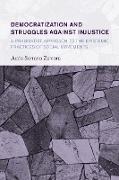Origin of Life Insights from Computational Models
BücherAngebote / Angebote:
The origin of life on this earth is as yet an unsolved mystery for scientists since the processes and pathways that lead from basic chemical building blocks to self- replicating cells are not yet clearly understood. Explaining the emergence and even- tual proliferation of large functional biomolecules in the absence of catalysts has been a long-standing hurdle in this regard. Such biomolecules must have preceded the Last Universal Common Ancestor (LUCA) of all living organisms, that was com- posed of DNA (for information storage) and proteins (for regulation and catalysis). Emergence of functional biomolecules however, is only the ¿rst step in the origin of life. Formation of protocellular compartments, emergence of functional biomolecules inside those compartments, and subsequent evolution of the protocellular popula- tions towards increasing functional diversity, were all events that had to precede the emergence of the earliest cells that appeared around 3.8 billion years ago. Need- less to say, we do not have a proper explanation for these later stages as well, that involves compartmentalised evolution. Now, going back to the earliest phase, an interesting hypothesis known as the RNA World Hypothesis, suggests that the ¿rst functional bio-molecules are likely to have evolved in an RNA world where RNA played the roles of information storage, catalysis, and regulation. This hypothesis proposes that RNA came before DNA and proteins as it has a simpler structure and the present DNA-protein world is thought to have evolved from this RNA world. Conceptualized ¿rst by Alexander Rich in 1962 [1] and coined by Walter Gilbert in 1986 [2], this hypothesis is mainly based on the experimental facts that RNA can store information and show enzymatic activities. RNA can also show regulatory activities like proteins and replicate like DNA. In the following, we provide a brief history of these experimental developments, followed by the shortcomings of the RNA world hypothesis. The papers presented in this thesis were an attempt to address those shortcomings and suggest plausible ways in which evolution in the earliest epochs eventually led to the origin of life.
Folgt in ca. 10 Arbeitstagen




